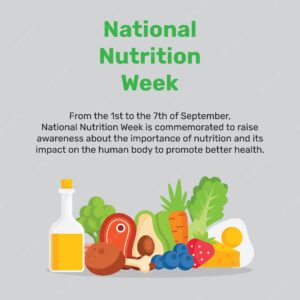Breastfeeding is a topic that sparks many discussions and debates among new mothers. The decision to breastfeed or formula feed is a personal one, and it is important to consider the unique needs of working women. In this article, we will explore the benefits of breastfeeding for working women and why it is a better choice compared to formula feeding.
The Importance of Breastfeeding for Working Women
Breastfeeding offers numerous benefits for both mothers and babies. It is a natural and complete source of nutrition that provides essential antibodies, vitamins, and minerals to support the growth and development of infants. For working women, breastfeeding can be a challenge due to time constraints and the need to return to work. However, with the right support and strategies in place, breastfeeding can be successfully maintained while juggling work responsibilities.
Bonding and Emotional Connection
Breastfeeding creates a unique bond between mother and baby. The skin-to-skin contact and the act of nursing promote feelings of closeness and connection. This is especially important for working mothers who may spend less time with their infants during the workday. Breastfeeding allows for quality bonding time that cannot be replicated with formula feeding.
Health Benefits for Baby
Breast milk is packed with essential nutrients and antibodies that help protect infants from various illnesses and diseases. Breastfed babies have a lower risk of infections, including respiratory tract infections, ear infections, and gastrointestinal infections. The antibodies present in breast milk boost the baby’s immune system and provide protection against common illnesses.
Convenience and Cost-effectiveness
Breastfeeding is a convenient and cost-effective choice for working women. Unlike formula feeding, there is no need to purchase expensive formula or spend time preparing bottles. Breast milk is readily available and always at the right temperature. This eliminates the need for bottle sterilization and preparation, making breastfeeding a hassle-free option for busy working mothers.
Long-term Health Benefits
Breastfeeding offers long-term health benefits for both mothers and babies. Breastfed babies have a lower risk of developing chronic conditions such as obesity, diabetes, and certain types of cancer later in life. For working mothers, breastfeeding has been linked to a reduced risk of breast cancer, ovarian cancer, and postpartum depression.
Overcoming Challenges: Breastfeeding while Working
Breastfeeding while working may present certain challenges, but with the right strategies and support, it can be successfully managed. Here are some tips for working women who want to continue breastfeeding:
Planning and Communication
Before returning to work, it is important to communicate with your employer about your desire to continue breastfeeding. Discuss the need for breaks and a private space to express milk. Many companies are supportive of breastfeeding mothers and may provide designated lactation rooms or flexible break times.
Pumping and Storing Breast Milk
Investing in a high-quality breast pump is essential for working women who want to continue breastfeeding. A double electric breast pump allows for efficient pumping and helps maintain milk supply. It is important to establish a pumping schedule and stick to it to maintain milk production. Expressed breast milk can be stored in sterilized containers or breast milk storage bags in the refrigerator or freezer.
Establishing a Routine
Creating a breastfeeding routine that aligns with your work schedule is crucial. This may involve pumping and storing breast milk in advance, planning nursing sessions around work breaks, and ensuring that your baby’s caregiver is familiar with the process of feeding expressed breast milk.
Seeking Support
Joining a breastfeeding support group or seeking the guidance of a lactation consultant can provide invaluable support and advice for working mothers. These professionals can help address any challenges or concerns related to breastfeeding while working and offer tips for maintaining a successful breastfeeding journey.
Formula Feeding: An Alternative for Working Women
While breastfeeding is highly recommended, formula feeding is a viable option for working women who are unable to breastfeed or choose not to. Modern infant formulas are designed to provide all the necessary nutrients for a baby’s growth and development. Formula feeding allows for more flexibility as it does not require direct breastfeeding or pumping.
Choosing the Right Formula
If formula feeding is the chosen method, it is important to select a high-quality infant formula that meets the nutritional needs of the baby. Consult with your pediatrician to determine the best formula for your baby’s specific requirements.
Establishing a Feeding Schedule
Formula feeding allows for more flexibility in establishing a feeding schedule. Working women can coordinate feeding times with their work schedule and ensure that the baby’s caregiver is well-equipped to prepare and feed formula.
Bonding and Connection
While formula feeding may lack the skin-to-skin contact and bonding experience of breastfeeding, it still provides an opportunity for caregiving and bonding. Engaging in eye contact, cuddling, and talking to the baby during feeding time can help foster a strong emotional connection.
Managing Work and Feeding
For working women who choose formula feeding, it is important to communicate with employers and caregivers about the baby’s feeding schedule. Ensure that the caregiver is well-informed about the proper preparation and storage of formula to maintain the baby’s health and safety.
Conclusion
Breastfeeding offers numerous benefits for working women and their babies. It promotes bonding, provides essential nutrients and antibodies, and offers long-term health benefits for both mothers and infants. While formula feeding is a valid alternative, breastfeeding remains the optimal choice for working women who are able to do so. With planning, support, and the right strategies in place, breastfeeding can be successfully maintained while managing work responsibilities. Ultimately, the decision to breastfeed or formula feed is a personal one, and each mother should choose the feeding method that best suits her and her baby’s needs.




